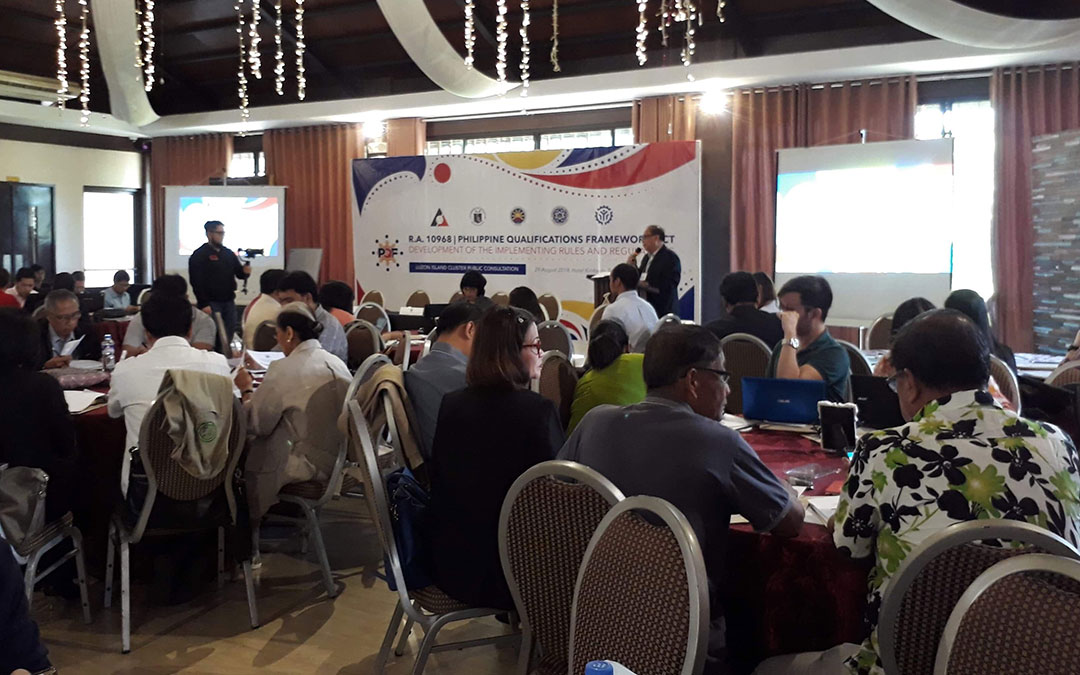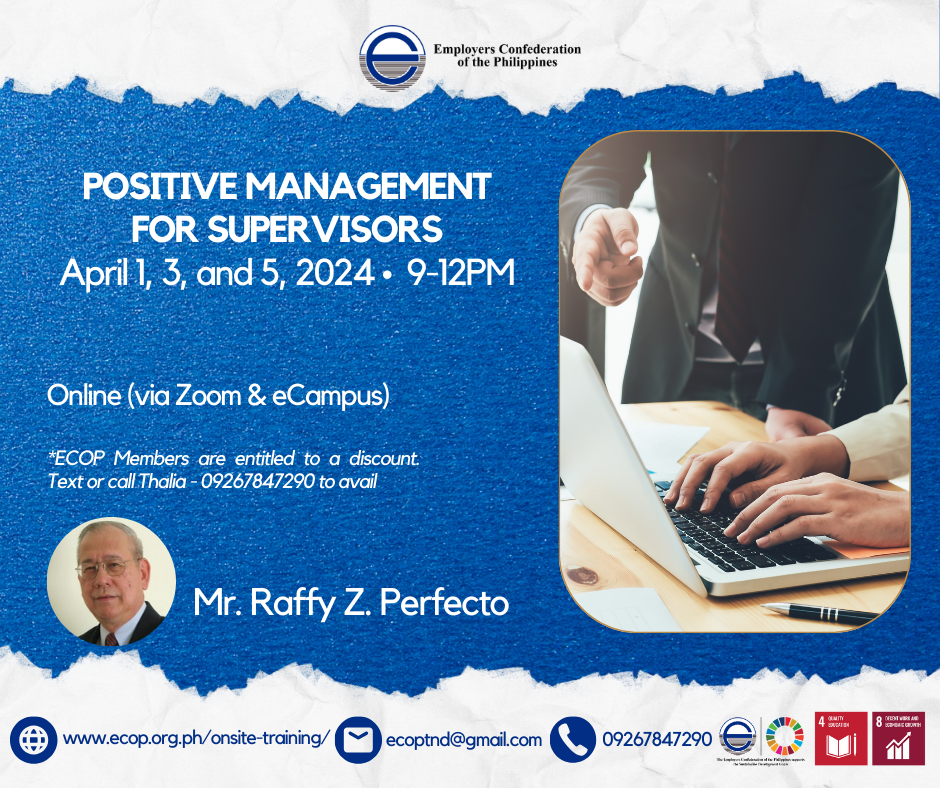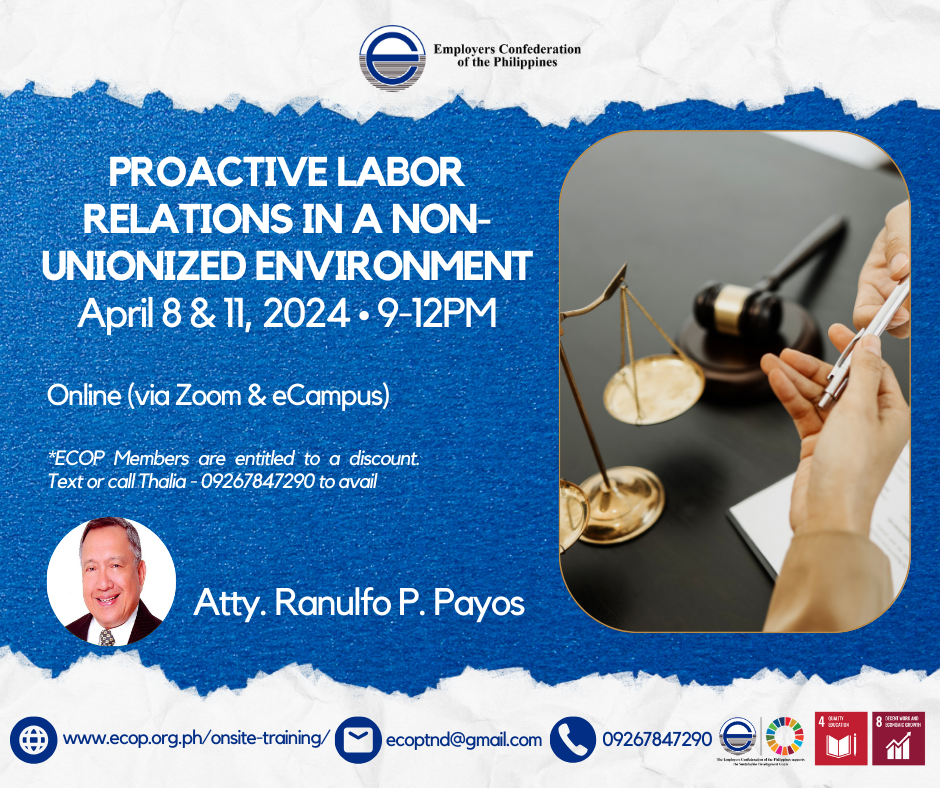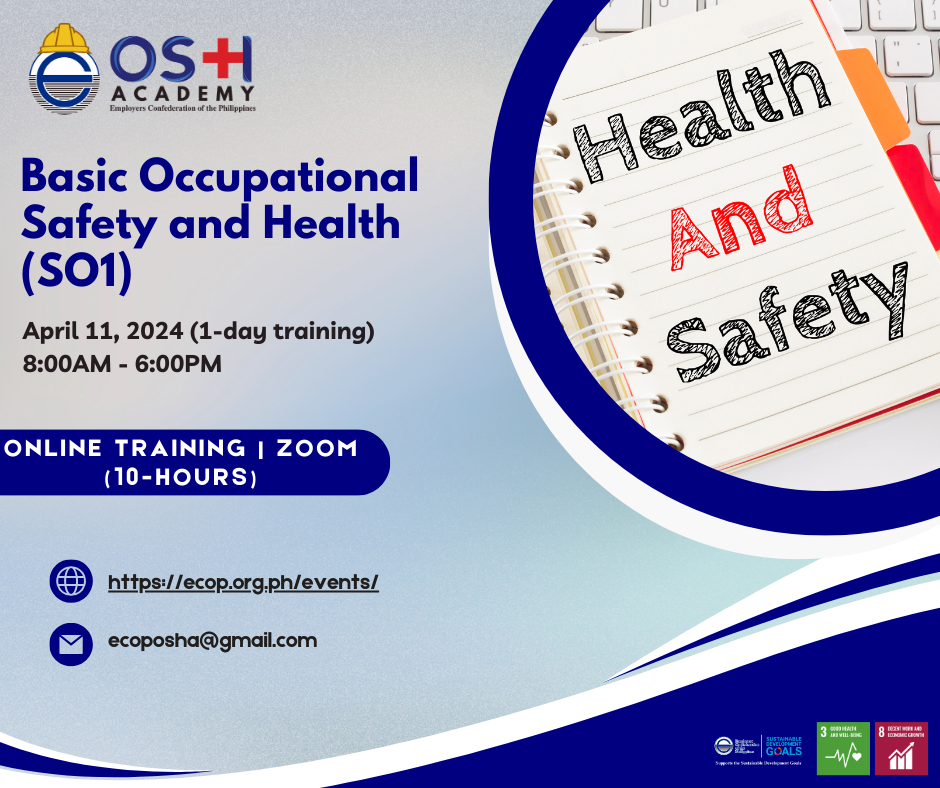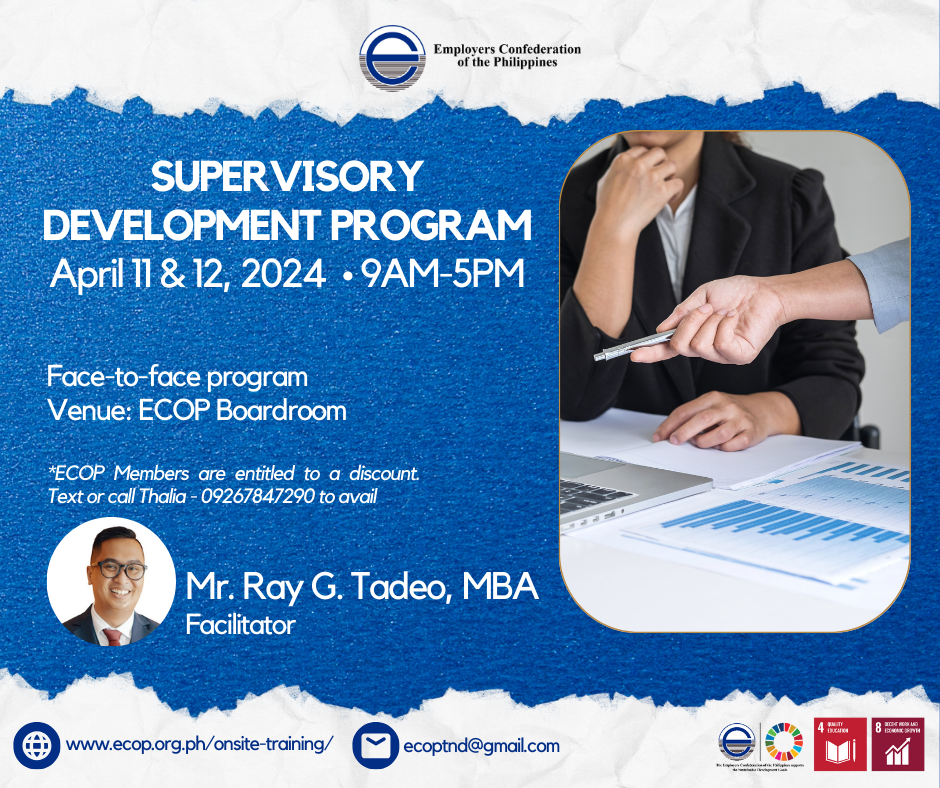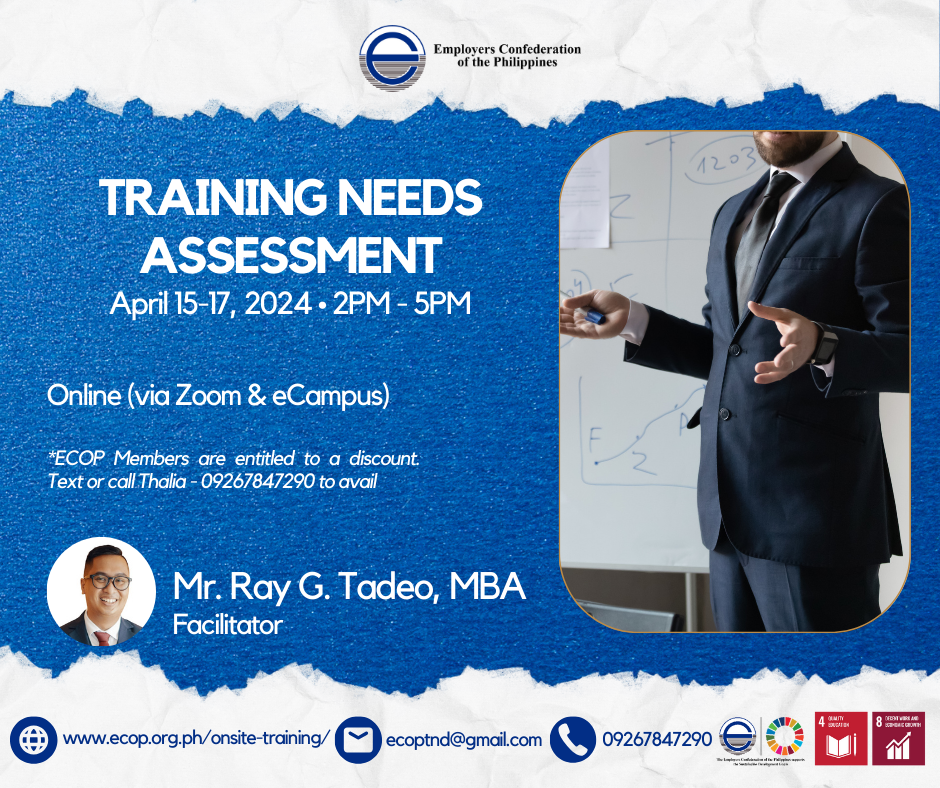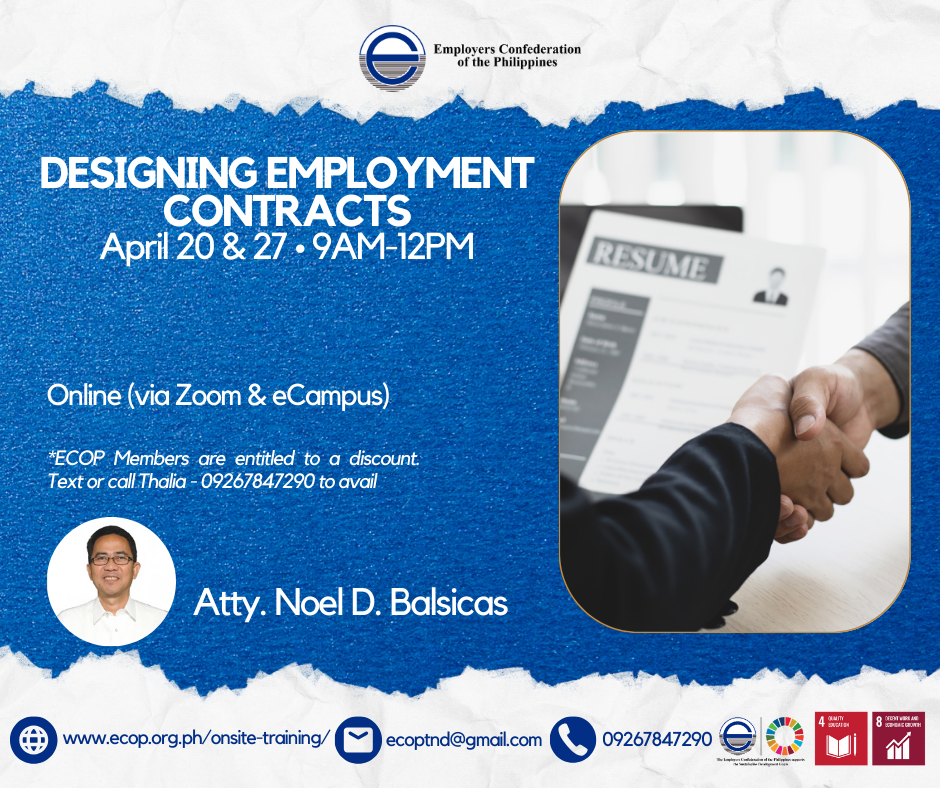On 29 August 2018, the Department of Labor and Employment (DOLE) and the Philippine Regulatory Commission (PRC) jointly conducted a consultation on the drafting of the Implementing Rules and Regulations (IRR) of the Republic Act No. 10968 or “An Act Institutionalizing the Philippine Qualifications Framework (PQF), establishing the PQF-National Coordinating Council (NCC), and Appropriating Funds” or the “Philippine Qualifications Framework Act” in Tagaytay City. This is part of a series of public consultations with stakeholders across the country.
The law was signed into law in 16 January 2018.
The Department of Education (DepEd) is the lead agency spearheading the crafting of the IRR. Other members of the Technical Working Group joining DOLE, PRC, and DepEd are the Commission on Higher Education, Technical Education and Skills Development Authority, and the Office of Senator Joel Villanueva who happens to be the Chair of the Senate Committee on Labor, Employment, and Human Resources Development and author and sponsor of the newly enacted law. The proposed IRR will be subjected to the approval of the PQF-National Coordinating Council which is composed of DepEd as Chair, and DOLE, CHED, TESDA, and PRC as members. Also part of the PQF-NCC are representatives from the economic and industry sectors.
During the consultation proper, most of the discussions revolved around the definition of the economic sector and industry sector. This is deemed to be crucial since the law did not provide any definition to these terms. The definition is also critical since it will play an important role in the nomination and selection process of these sectoral representatives.
The draft IRR defines economic sector as “productive sectors of the economy that include agriculture, industry, and services”, while the industry sector as “the subsector comprising mining and quarrying, manufacturing, construction, and electricity, gas, and water”. Participants to the consultation expressed their reservations on the definitions provided stating that this is not the intended definition of the law, and that the definitions tend to limit the industries that are covered.
On the selection of the sector representatives, a number of participants including ECOP, voiced out that the most representative organization/s with the broadest membership base, and not just any other organization, must be the one/s to nominate and endorse the representatives. Two participants, including ECOP, specifically mentioned that ECOP and PCCI must represent the economic and industry sectors in the PQF-NCC.

